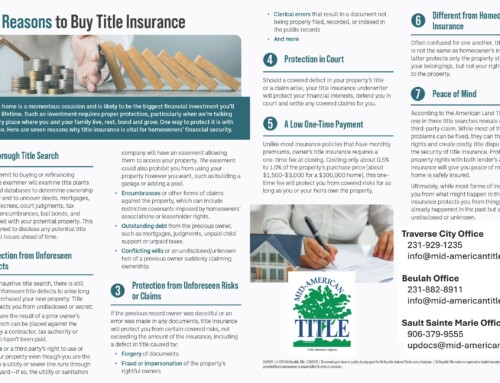Dear College Grads: Start Saving for Your Dream House Now (and Other Unsolicited Advice for Your Future)
By
Jamie Wiebe
Image Source/Getty Images
Ireneusz Skorupa/iStock
Congratulations, new grads: You’re free! After four long years at college, it’s time to move on to the next stage of your life: adulthood.
That means you get to start thinking about exciting things like your first job, a 401(k), and—sexiest of all—homeownership. And while you might still be sleeping off those Jell-O shots from last night, it’s time to wake up, chug some water, and start preparing yourself financially—if buying a house happens to be one of your long-term goals.
Start preparing now, and buying a house won’t be a struggle. “If you make good money, you have a clean credit rating, and you’ve got enough money set aside for the down payment, buying a house is not really a big hassle,” says Stewart Koesten, the chief executive and executive chairman of KHC Wealth Management in Overland Park, KS.
Sounds easy, right? Make money, save money, have good credit. Ta-da, a house! Not so much: Getting your finances in order for homeownership can be a challenge, even if your goal isn’t a luxury mansion. Here are seven ways to start achieving those goals right now.
1. Get your credit score in order
Sure, your mailbox may be overflowing with credit card offers and the idea of “paying the bills” still seems a bit confusing, but now’s the time to start getting your credit score in shape. One simple way to start building a history: Get your first credit card, because the credit bureaus consider the average age of your accounts when evaluating your score—and you’ll want a great score when it’s time to buy a house.
But if you have a history of overspending, this may not be the right solution for you. A long credit history with a high balance and poor on-time payment record will do more damage. One option might be a secured credit card, which is backed by a cash deposit that’s usually equivalent to your limit. That way, you can never spend more than what you have available.
“There’s not too much difference between a good and a great credit score, in terms of buying a home,” Koesten says. The maximum score is 850, but once you get above 700, the only major advantage a better score will get you is a few points difference on your interest rate. “A bad credit score will hurt you. If you have a credit card or debts you didn’t honor, and you messed up your credit in the process, it will be detrimental to the whole process,” he says.
If you have student loans, a credit card may not be necessary. They also contribute to your score, so focus on paying them down regularly (and on time) to improve your rating.
2. Consider jobs with homeownership in mind
It might be a little too late to change your major, and we’d never suggest passing up your dream job just for money. But if you’re still evaluating your career path (i.e., you really have no idea what you want to or can do for the rest of your life) and homeownership is your dream, make sure to keep finances in mind when you’re searching.
Please, Mr. Postman
Send me news, tips, and promos from realtor.com® and Move.
It’s not just about the salary: Does the company match your 401(k) contributions? That will save you tens of thousands of dollars down the line. Are there career opportunities in the cities where you’d like to eventually purchase a home? Everyone should do what they love—but first, make sure that the career you crave is aligned with the lifestyle you dream of.
The easiest way to start saving is to smart small: Put away $10 a week, or use an app like Digit or Acorns to invest your small change.
3. Pay off that debt
If you’re like most young Americans, you’ll be coming out of college with a mound of debt. (The national average for a 2015 grad is $35,000!) It’s easy to ignore it, but balancing a mortgage and your student debt payments is a big burden, even with a generous salary.
Make paying off your debt your No. 1 priority, even if it means sacrificing other goals in the short term. For instance, if you have the opportunity to live at home while working for a few years, do it! (Seriously, we’re not judging—just know what you’re getting yourself into.) Or give up smaller pleasures, like Starbucks and gym membership, until you’ve paid down your debt. Short-term independence is a worthy sacrifice for long-term freedom. Plus, making regular payments will help improve your credit score.
If you’ve graduated college with credit card debt, make that the priority: The super-high-interest rates that come with most student credit cards can make them a crippling financial burden for years to come.
4. Decide what kind of home you want
You’re young—it’s OK if you don’t know a ranch home from a Colonial. (Unless you were an architecture or urban planning major, in which case, uh, maybe brush up on Design 101 before graduation.) But you should start thinking about where you want to live and how you want your future lifestyle to look. Would you feel lost without a yard? Or are you more of a city person, dreaming of a pristine rowhouse?
Even if you’re just looking to buy a starter home or studio apartment and save the dream home for your future, it’s important to keep in mind how you’d like to live.
First, make sure your financial future matches up with your ideal location.
“If you have a modest income in an area that requires higher incomes to live well, you have to adjust your expectations and live where you can afford,” Koesten says. “Don’t try to be too aggressive with your finances.”
Don’t worry if you haven’t mapped out all of the specifics yet. Even a general idea of your goals can help you develop a financial plan that meets your future needs.
5. Start saving your money
No one’s surprised that homes are expensive—you can see the price right there on the listing! Your dream home might cost more than four years’ tuition, but you just need to save up for the down payment, right?
Not so fast. What can be surprising is how much is due upfront: In addition to your down payment, you’ll have to pay for a home inspector, any relevant taxes, and a bevy of closing costs. Together, they can add up to 5% (or more) of the home’s price.
“Make sure you have sufficient reserves, so when you do eventually buy a home you’re not tapping all your resources,” Koesten says. “You want enough money left over after you buy the home to give yourself a little cushion.”
Sure, it seems like a lot of money—it is a lot of money!—but the sooner you start socking money away, the sooner you’ll be able to start looking for your dream home.
6. Don’t play games with your savings
Don’t treat the housing market like a casino and gamble with your future home.
As tempting as it might be, dumping your home savings into the stock market willy-nilly could lead to major trouble if there’s an upset right before you’re looking to buy. Either hire a financial adviser or stick to high-interest savings accounts and CDs.
“You want to make sure that in 10 years, the money you’ve saved has a high probability of being there,” Koesten says.
7. Don’t fall for lifestyle inflation
It’s fun to make money: More nights on the town! A bigger apartment! You can finally get a dog!
Rein in your impulses, and never change your lifestyle because of your salary. A big jump in income is a huge temptation to spend more on eating out or entertainment or weekly happy hours, especially if you’ve been living on a college student budget.
Our advice? Ignore the impulse. The No. 1 way to throw off your financial goals is to fall prey to lifestyle inflation. Raises and bonuses serve you best tucked away in your savings—even if that’s not as much fun.
8. Start small
Your first home doesn’t have to be your forever home. You may love the idea of a white picket fence and multiacre lawn—but it’s OK to start saving with a smaller home or apartment in mind. If you’re planning on staying in one place, purchasing a modest house or studio apartment can be an excellent beginner home. Don’t feel bad if you can’t afford your dream home off the bat: You’ve got many years left to save.
So, are you ready to get out there and start saving for a house now? We sure hope so. After all, you’re not getting any younger.
Source: www.realtor.com







